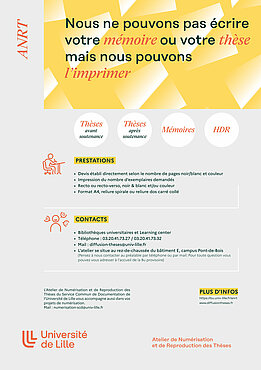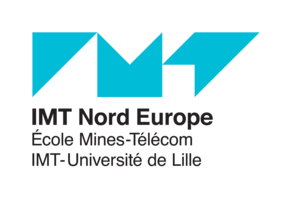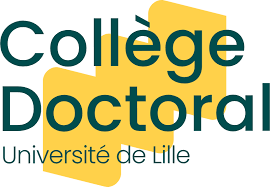Thesis Defence Procedure
Thesis Defence
The thesis defence is a public oral examination, sometimes also referred to as a viva (unless an exemption is granted) that lasts approximately 45 minutes. The candidate will give a PowerPoint presentation of their thesis work, covering the primary theoretical and experimental aspects
After the presentation, the jury will hold a 1-2 hour question session with the candidate
Following the jury's deliberations, the candidate will be awarded the degree of doctor
Putting together the paperwork for the thesis defence requires the same rigour as preparing the thesis itself. It cannot be done in a hurry
- The thesis supervisor is responsible for proposing a tentative date for the defence at least three months before the deadline
- Registration for the academic year N-1/N means that the thesis defence must take place no later than 31 December of the current year
- If you defend your thesis on or after 1 January of year N+1, you must renew your registration for that year
- The oral examination will take place at the candidate's institution, unless approved otherwise by management. If the arranged location is outside the University, an exemption request must be submitted
- In the case of joint supervision, the location arrangement is included in the agreement
Attention: The first step for the doctoral candidate is to complete the form authorizing them to begin the defence procedure. Then, they should confirm their official registration with the degree-awarding institution and on ADUM before announcing the thesis defence date
Thesis Defence Submission Procedure
After validating the training assessment and reviewing publications, training credits, etc., the doctoral school authorises the defence procedure ("Authorisation to Initiate the Defence Procedure", in French, Word, 146 kB)
The doctoral school will only authorise the defence procedure for doctoral candidates who meet specific criteria :
-
Completed a minimum of 60 training credits (except for joint supervision or other possible exemptions)
-
Appointed the thesis defence examining committee with both ordinary and external members in accordance with the French Order of 25 May 2016
-
Had a publication submitted or accepted in an international journal (or a paper presented at an international conference)
You announce your thesis defence by entering the date of the defence, listing out all the members of the jury and uploading a PDF version of the thesis on ADUM - Your thesis supervisor confirms the composition of the jury
The first submission of the thesis is in digital format on ADUM. This version is sent to all members of the thesis defence examining committee
You may also provide paper copies for the members of the jury and the external members if they request them. Find out about their preference when you're off the record
- Tutorial: Announcing the Thesis Defence on ADUM (in French, PDF, 1.6 MB)
The composition of the jury is validated by the doctoral school. Please be sure to send all the necessary documents to your institution's Doctoral Affairs Department (SAD). For instance, if you are submitting your thesis to the University of Lille, you will need to submit a single PDF document containing the manuscript, the certificate of submission of the PDF/certificate of conformity (after submission of the manuscript), the certificate of school attendance for the current year, and if required, the derogatory form pertaining to the thesis defence. The derogatory form should be signed by you and your thesis supervisor in case of any other request such as thesis defence taking place outside Lille or confidentiality. You can do all this via the "Documents to Add" tab on your ADUM profile
Without this information, we cannot assemble your jury or appoint external members of the thesis defence examining committee
External members and members of the jury are assembled
For doctoral candidates, please get in touch with the department that will acknowledge receipt of the final copy of your thesis after your defence
For example, for doctoral candidates at the University of Lille, LILLIAD (shared documentation service) is in charge of archiving, reporting and publishing your thesis. You can make an appointment by e-mail to lilliad-theses@univ-lille.fr. The purpose of this one-hour meeting is to establish the indexation of the thesis for its inclusion in the French National Bibliography of Theses and define the conditions for its final submission (after the defence) and electronic distribution. During the discussion, you will specifically address copyright matters related to the content of your thesis
For Centrale Lille, please contact Ms. Salima Halitim - salima.halitim(a)centralelille.fr - +33 (0)3 20 33 53 36
The reports from the external members of the thesis defence examining committee need to be filed online on ADUM using the link that they receive via email
The reports should be unambiguous and must end with either a "favourable opinion" or an "unfavourable opinion" regarding the authorisation to defend the thesis
The preliminary reports should then be signed
Favourable reports initiate the defence authorisation procedure
The doctoral school then validates the proposal to authorise the defence on ADUM
The President of the institution where the defence is scheduled authorises it after consulting the Director of the doctoral school
The members of the jury confirm the defence
The notice of the defence is published and distributed
The doctoral candidate or thesis supervisor must download the defence documents from ADUM, print them for handwritten signatures and hand them to the jury
On the day of the examination, the head of the jury must complete these documents and have them signed by all other members of the jury
If any members attend through videoconference, they must provide a power of attorney to the doctoral candidate or thesis supervisor. This will allow the head of the jury to sign the documents on their behalf
Useful Tips
It must offer every guarantee of independence and expertise
He or she is appointed by the head of the institution after consultation with the Graduate School director and the thesis director
It consists of 4 to 8 members and should have a balanced representation of men and women.
- External members who have no subordinate relationship, interest or proven proximity to the doctoral candidate, the thesis supervisor, the doctoral school, the research group or the institution.
- Members who are recognised as competent and able to assess the quality and originality of the work presented, in the light of the international context.
The thesis supervisor, though participating in the jury and the entire closed meeting, does not take part in the decision-making process.
The are 2 external members who must be :
- awarded with habilitation (HDR or lecturer), University professors or equivalent in this category - They may belong to foreign higher education or research establishments or other foreign bodies
- external to the enrolling institution and the University of Lille's Initiative of Excellence, as well as to laboratories within the scope of the SMRE Graduate School
- external to the doctoral project (no co-publication with the doctoral candidate, no participation in their thesis work, therefore not a member of the CSI)
- may be a retired person
The external examiner should not be :
-
a B-rank researcher or lecturer without HDR (lecturer, research fellow)
-
a co-author of the candidate's articles, especially if the co-authored article appears in the thesis
-
a member of your individual examining committee
-
a member of a lab within the scope of the GS SMRE or a co-accredited institution
-
a professional expert without an HDR unless they have an equivalence approved by the school management
-
a sponsor of your thesis or a tutor from the CIFRE (Industrial Agreement for Training through Research)
-
the thesis supervisor
Internal: no more than half (≤50%)
External: no less than half (≥50%)
The following will be considered as internal examiners
- Thesis supervisor, co-supervisor or coordinator
- A member of a laboratory within the scope of the ED SMRE and/or a co-accredited institution (Centrale Lille - IMT Nord Europe)
- A representative from a CIFRE (Industrial Agreement for Training through Research) company
- A co-author of an article
- A representative of the sponsor
Professors or associate professors (rank A)*: not less than half (≥50%)
Rank B and others: not more than half (≤50%)
*A-level staff:
- Tenured and retired university professors (lecturers and HDR-holders not included in this category);
- Equivalent professors from the following institutions: MNHN, Collège de France, CNAM, INALCO, Ecole centrale de Paris;
- Research directors governed by the French Decree no. 83-1260 of 30 December 1983;
- Directors and deputy directors of the institutions listed in article 6;
- Astronomers and physicists (see Article 6);
- Tenured professors for foreign nationals.
The head of the jury can be:
- a professor or equivalent or an A-level teacher;
- a research director;
- an external member;
- an internal member;
- an external examiner.
The head of the jury cannot be :
-
a retired professor or equivalent
-
a research manager
-
the thesis supervisor
-
a habilitated research fellow
-
a doctor
-
a lecturer
-
a senior lecturer (HDR)
-
an expert who does not have a university degree but whose professional or scientific skills are recognised
-
a non-academic person
A maximum of two guest members are allowed
These guest members are not considered members of the jury, and their names are not included in any official document related to the examination. They do not appear on the examination report, do not sign the examination report, and do not appear on the diploma
They may appear on the manuscript's cover but in a separate block from the jury's. It must not be possible to confuse the guest members with the official members of the jury
Apply for a defence on ADUM
Once you have received the EG's authorisation to start the defence procedure, you can declare your defence on ADUM.
Declaration of the defence and jury proposal
- In your personal space, select the link ‘I would like to submit my defence request’
- Update or fill in the required fields in the ‘Defense’ section and save your entry
- This action will immediately trigger the submission of your jury proposal and choice of rapporteurs for verification by the thesis director and the graduate school
First submission of the manuscript
- The submission of the thesis manuscript in PDF format is necessary to finalise the procedure. This version will be sent to the referees. Submit the file under the heading ‘Submitting the pdf of the thesis’
- Submit the Certificate of conformity with the defence version - signed - and a school leaving certificate
- If necessary, fill in the videoconference jury member proxy form and send it to soutenances(a)univ-lille.fr
Before finalising the application
- Make sure that the following information has been correctly filled in: your marital status, the title of the degree, the title of the thesis, and the exact qualifications and titles of the people proposed for the jury (this information will appear on the degree)
- If you are co-supervising a thesis, make sure that you comply with the requirements stipulated by the two institutions in the agreement, including when the defence takes place at the partner institution
Finalise your application for a defence : ‘I am finalising the procedure’ section. Your application will first be examined by the graduate school and the doctoral affairs department at your degree-granting establishement, which will send the manuscript to the rapporteurs and inform the members of the jury of their appointment.
Tutorial: Thesis Defence Timetable and Deadlines (in French, PDF, 248 kB)
After the defence of the thesis
- the head of the jury will submit the original minutes and report of the examination to the awarding institution
- The doctoral candidate is required to submit the final copy of their thesis to the shared documentation service (SCD). In case the jury requests any corrections at the time of the thesis defence, the doctoral candidate has three months to make those corrections
- The corrected thesis is then submitted, together with all its metadata
- The doctor will receive a provisional certificate pending receipt of their diploma
Submission and Publication of the Thesis
Submission of the thesis:
- is a legal obligation
- is a prerequisite for the award of your diploma
- guarantees the long-term preservation of your electronic thesis by the French National Computer Center for Higher Education (CINES)
- allows your thesis to be made available to the entire university community
To learn how to submit and publish your thesis, please visit the LILLIAD website
Once your thesis has been submitted, LILLIAD (our shared documentation service) will handle its archiving, reporting, and publication
The French Charter for Distribution of Electronic Theses governs how theses from the College of Science and Technology at the University of Lille are distributed
Visual Presentation of the Thesis
The thesis is generally written in French as per the standard requirements
However, the university also permits writing in English, provided the rules laid down by the university are followed
For joint supervision or theses with the European label, it is recommended to refer to the appropriate texts and the joint supervision agreement for further guidelines
The title page of your thesis should contain the following information at minimum :
- University name and logo: University of Lille
- Doctoral school name and logo: ED SMRE
- Logos of your sponsors
- Lab name and logo
- Thesis title: identical to the title you entered in ADUM
- The words "Thèse préparée et soutenue publiquement par Votre Nom le XX/XX/20XX, pour obtenir le grade de Docteur en Votre discipline de thèse" (Thesis prepared and publicly defended by [Your Name] on [XX/XX/20XX], to obtain the degree of Doctor in [Your thesis discipline]) or any other equivalent wording
- Date of thesis defence
- List of all the jury members with their titles and affiliation
Your discipline or area of expertise must be identical to the one entered in ADUM
If you have written your thesis in English, remember to include the English and French versions of the title on this front page. Both are necessary
The back cover is the last page your thesis manuscript, hereby concluding your work. It must contain sufficient information for its content to be properly evaluated :
- Abstract in French: The abstract is limited in terms of characters and spaces. It must be concise and explain the topic clearly. All the words in the summary are indexed and can be used for research purposes
- Keywords in French: You choose them in agreement with your thesis supervisor, according to the relevant terminology in the given discipline. The school library will use the chosen keywords for indexing in the shared catalogues
- Title in English: Used to register your thesis in international databases. All the words are indexed and can be used for research purposes
- Abstract in English: The abstract is limited in terms of characters and spaces. It faithfully reproduces the French summary without being a purely literal translation
- Keywords in English: Used to register your thesis in international databases
Print your thesis
The ANRT can take charge of printing theses before they are defended, once you have provided the digital file
ANRT provides technical support in finalising the document and then prints the number of copies requested, in black and white and/or colour, A4 format, square spine binding
More informations : https://bu.univ-lille.fr/chercheurs-doctorants/numerisation-impression
Scientifics productions
A practical guide to scientific production
This guide Dissertations, theses, publications: let's be accessible! is produced by the Ministry of Higher Education.
Its purpose is to raise awareness among students, from the earliest stages of their research (Masters, PhD), of the means available to facilitate the accessibility of the content they will be required to produce, right from the design stage.
Upcoming Thesis Defences
The Oath
In application of Article L612-7 of the French Education Code, higher education and research institutions implement an oath of scientific integrity as part of the defence of their doctoral candidates
This measure is included in the Order of 26 August 2022 amending the Order of 25 May 2016
When a doctor takes an oath, it is a moral commitment and not the same as joining a professional order
The oath can be used to refuse actions that go against the principles of scientific integrity
This oath is henceforth part of the new doctoral charter
It is linked to obtaining a doctoral degree and maintaining scientific integrity
It is an important step in raising awareness of ethics and scientific integrity among new doctors. The oath is taken at the end of the defence, after receiving a positive verdict from the jury
"In the presence of my peers.
"With the completion of my doctorate in [xxx], in my quest for knowledge, I have carried out demanding research, demonstrated intellectual rigour, ethical reflection, and respect for the principles of research integrity. As I pursue my professional career, whatever my chosen field, I pledge, to the best of my ability, to continue to maintain integrity in my relationship to knowledge, my methods, and my results."
The French Office for Research Integrity (OFIS) provides a framework and legal status for the oath, its implications, and its scope. It examines the role of the working environment and that of doctoral supervisors
Another document traces the origins of the oath in France and outlines additional resources and references: Read the file (in French)


![[Translate to English:] Dessin - Illustration - Toque de docteur [Translate to English:] Dessin - Illustration - Toque de docteur](/fileadmin/_processed_/1/7/csm_Capture-d_u2019ecran-2020-06-02-a-10.30.28-480x413_71e3b7056d.png)
![[Translate to English:] Dessin - Illustration - docteur et son parchemin [Translate to English:] Dessin - Illustration - docteur et son parchemin](/fileadmin/user_upload/edsmre/logos/phd_0.png)
![[Translate to English:] Dessin - Illustration - toque de docteur [Translate to English:] Dessin - Illustration - toque de docteur](/fileadmin/user_upload/edsmre/logos/Capture-d_u2019ecran-2020-06-02-a-10.30.28-480x413.png)



